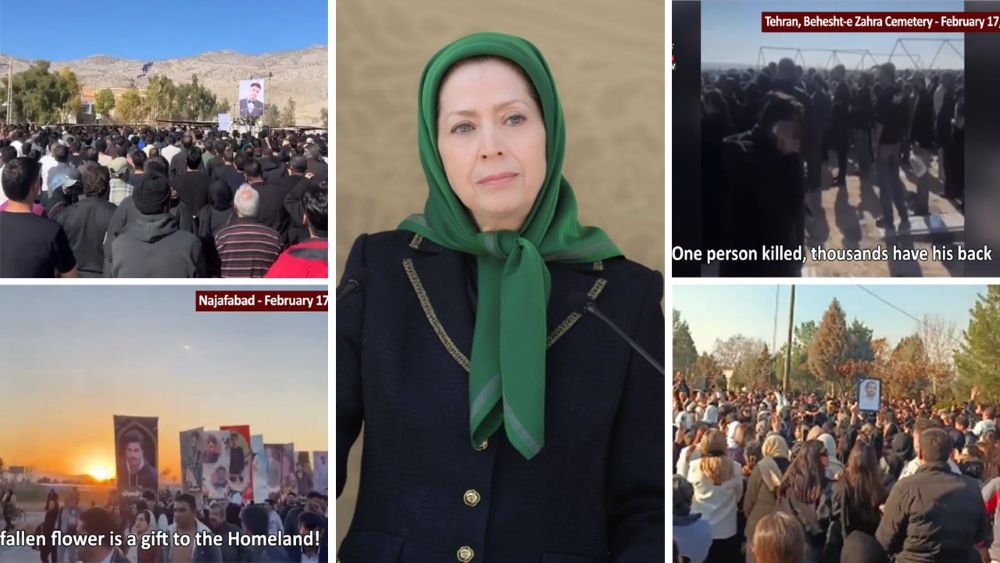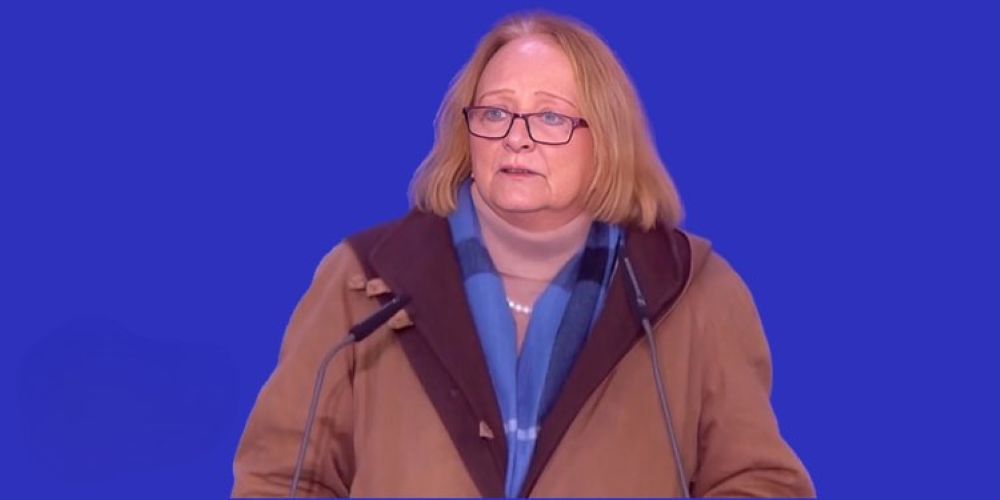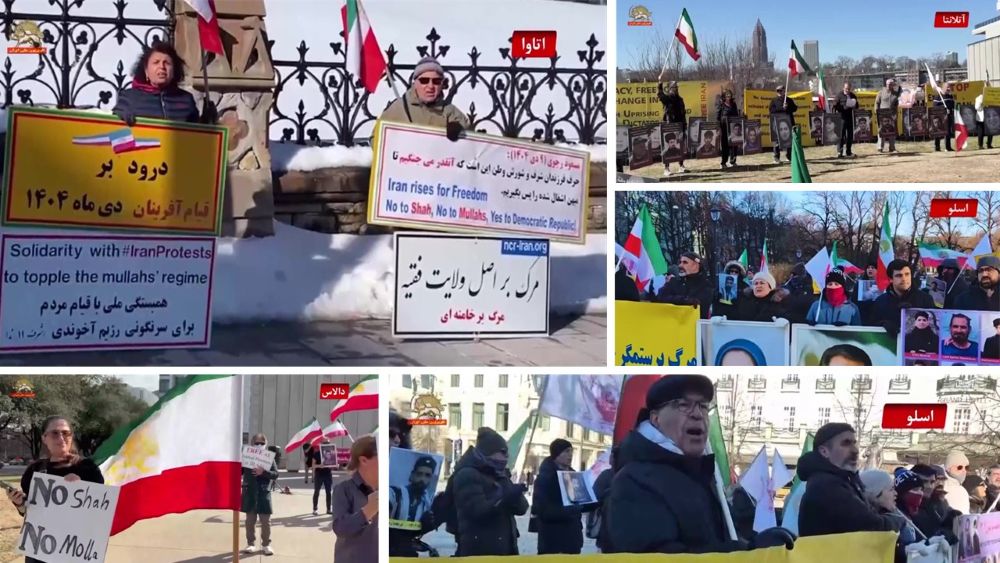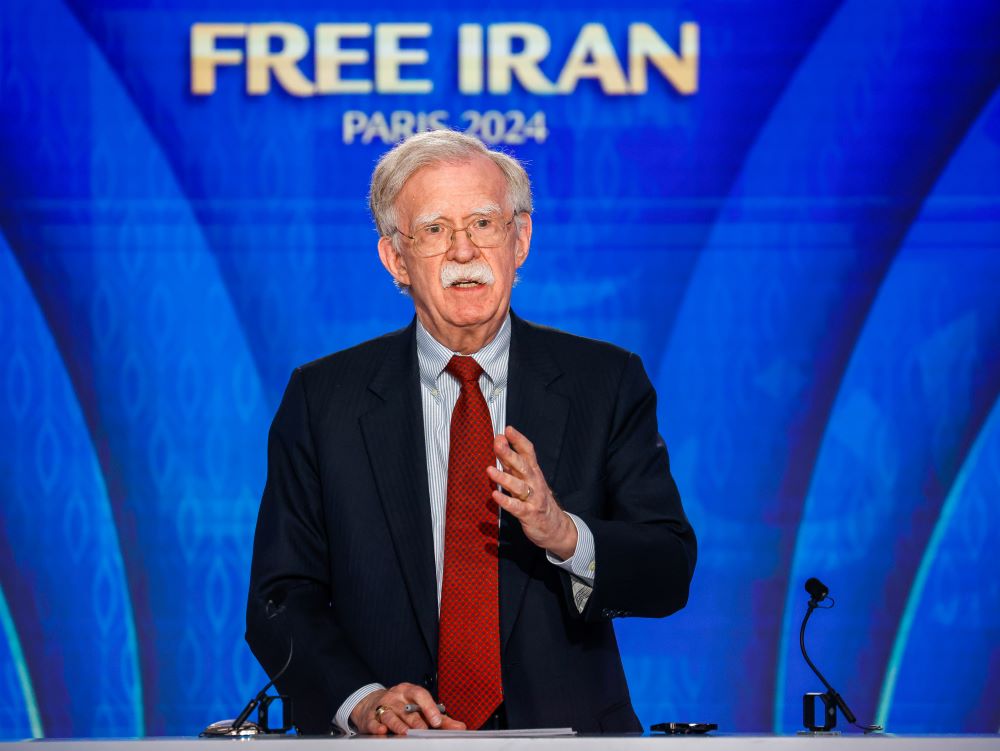
On June 29, 2024, at the Free Iran 2024 World Summit hosted at the National Council of Resistance of Iran (NCRI) headquarters in Paris, former US National Security Advisor Ambassador John Bolton delivered a speech. He asserted that the United States should adopt a clear policy aimed at overthrowing the regime in Tehran.
1. @AmbJohnBolton Calls for Decisive US Action to Support Iranian Regime Change at #FreeIran2024 World Summit#MaryamRajavi4FreeIran #BerlinDemo29Junehttps://t.co/BbzDa9pJs7
— Iran Freedom (@4FreedominIran) June 29, 2024
The full text of former U.S. National Security Advisor John Bolton’s speech follows:
Thank you very much, thank you very much, good afternoon,
Madame Rajavi, it’s a great pleasure to be here today. I’d like to start where I usually leave off my remarks at this gathering because I think it’s important to get to the issue quickly, and that is it should be the declared policy of the government of the United States to overthrow the regime of the ayatollahs in Tehran. No equivocation.
Now, the fact is, over the years, the plight of the Iranian people alone under this regime has been insufficient to rally international public support. People talk a lot about the problems of the people of Iran, but they haven’t really done anything effectively to change that, and I think more must be done.
I think foreign governments have to be shown that the regime of the mullahs is not simply oppressive to the people of Iran but challenges their own vital national security interests. That’s how to get governments motivated, and I think that we’ve got a couple of key developments since the last time we were together here that demonstrate that very quickly.
The first is the emerging Beijing-Moscow axis, of which Iran is one of the satellite countries, provides new foundational circumstances for U.S. and other policy. And second, the events of October 7th, another new development and an independent foundation for opposing the regime in Iran, which was responsible for the Hamas attack.
The Beijing-Moscow axis is something that we see in operation directly and through its surrogates all around the world. We see Iran selling drones to Russia to use against the Ukrainian armed forces and the people of Ukraine. We heard from Moscow just in the past week that Russia and Iran are on the verge of signing what the Russians call a big treaty of international cooperation because of the unprecedented upswing in Russian-Iranian relations.
And I think that means we face, along with the danger in North Korea, the very real possibility that now Russia will simply ignore all existing sanctions, ignore decades of denying, and absolutely give nuclear and ballistic missile technological advice both to Iran and North Korea, which have cooperated in the development of their nuclear and ballistic missile programs for many years.
But to have direct participation by Russia, and therefore possibly by China as well, heightens the threat that Iran has, not just in the Middle East, but around the world. And I think also, as we look at this effort by the axis between Beijing and Moscow and their outriders, we can see that sanctions regimes are vulnerable to evasion and efforts by the targets to avoid them.
We’ve seen it in the case of Russia, where European and American sanctions have done nothing to prevent the Russians from continuing their aggression in Ukraine, now supported not only by Iran but by North Korea selling them artillery and ammunition.
This weakness in the sanctions should tell us everything we need to know about what the consequences will be if we don’t resolve a policy, a clearly articulated policy of overthrowing the regime. The regime simply continues in power. And if all that weren’t enough, the barbaric attack on Israel by Hamas on October 7th should tell all of us that this is the way Iran treats its opponents.
The ring of fire strategy is directed first against Israel, developed by Qasem Soleimani, the late, unlamented Qasem Soleimani, and it has been implemented by the Quds Force and the Revolutionary Guard, but it’s not aimed just at Israel, the little Satan. It’s aimed at the Gulf Arab states, and ultimately it’s aimed at the United States.
It pursues a policy of assassination and intimidation, not just in the Middle East, but in Europe and the United States, and it seeks to accomplish objectives far beyond the initial targeting. That’s why Iran has a nuclear weapons program. That’s why Iran is developing long-range ballistic missiles. This is something that I think finally more and more countries are beginning to see.
This is a direct threat to Iran’s adversaries all around the world. So, once we’ve decided, based on geostrategic reality, not simply what’s happening in Iran, although that alone is enough, but looking at the bigger picture, the threats that the United States and Europe face in Europe and in the Middle East, we have to ask, I think, some hard questions about exactly how we’re going to carry out regime change.
It’s one thing to talk about it. It’s another thing to do it. What do the opposition, the NCRI, and others, what do they have to do to achieve this objective? We know that the NCRI has extraordinary networks inside Iran. I can tell you for over 20 years, I have followed very closely what they’ve said about Iran’s nuclear weapons program. They have never once released information publicly that wasn’t true in every material respect.
This is an incredible record of success for a nongovernmental intelligence-gathering organization, and it demonstrates the contacts they have throughout Iran. This is a basis on which we can build to help the people of Iran achieve the objective they want, and that’s really the first principle of the opposition. This is a matter for Iranians. Others outside can do a lot to help, but this is for the benefit of the Iranian people.
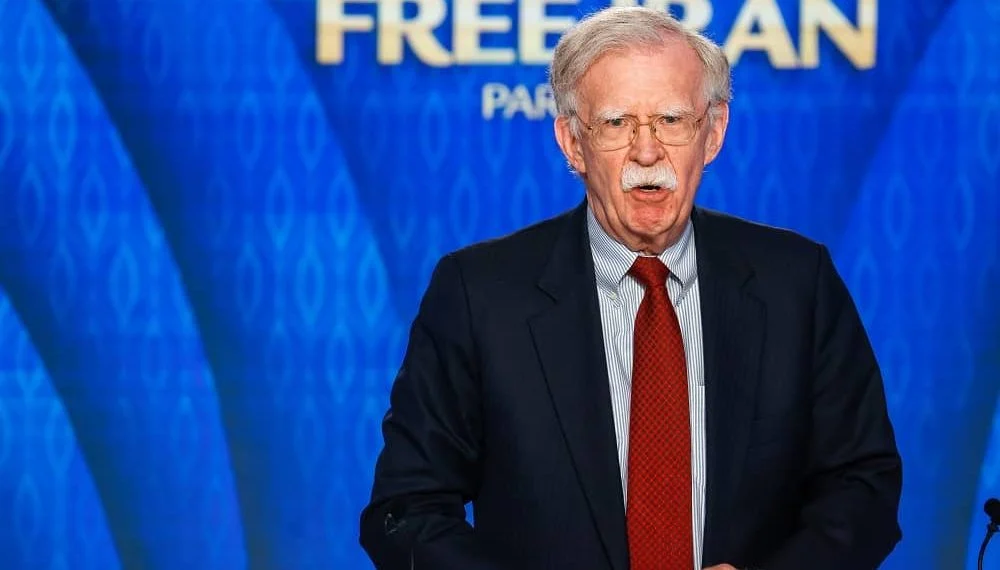
We’re not talking about overthrowing the government of Iran as our strategy. It’s the strategy of the people of Iran that we’re trying to help carry out. I think the way to do this most effectively, and there are many ways regime change can occur, but the most effective is to look for fragmentation at the top of the Islamic revolution.
Let’s be clear. The Ayatollah Khamenei is aging and in ill health, and there’s never a more vulnerable point for an authoritarian regime than when the top leader is near the end of his term on earth. They have not agreed on a succession plan. There have only been two supreme leaders.
They’ve just seen the president, a potential supreme leader, die. They don’t know what they would do if the succession crisis came upon them immediately. We know they’re ruthless. We know they’re brutal. We know that for them the stakes are existential, but never underestimate the power of human ambition.
As the IRGC and Quds Force leaders struggle among themselves, that is how the regime cracks. That’s how the people can take to the streets and get the demonstrations changed. I think that’s what we should look for.
We should look for peaceful demonstrations to accomplish this, but we should have it very clearly in mind that things don’t always turn out so well, and that to get their liberty from this oppressive, authoritarian government, there may well be a need for the people of Iran to have their own capability to defend themselves and not simply be subject to repression from the regime.
Revolutions are often bloody. That’s a fact. Now, this does not mean that there needs to be force from external powers. That’s not what I’m saying at all, but the opposition can use material financial support. It can use a lot of different kinds of support that we should provide. In particular, we should ramp back up the sanctions that have been failing these last several years.
We can use the slogan, maximum pressure, all we want. I certainly used it when I was in government, but it’s not effective enough as it is now. Until sanctions are rigorously enforced, not as part of some judicial process, but as Woodrow Wilson, the chief articulator of sanctions, described them a hundred years ago, sanctions are a weapon of war without military force, in this case, used against the opposition.
Now, some people say, you know, we can deal with the mullahs, we don’t need all this turmoil in Iran, it’s not so bad, let’s just live through it. This is false, and it’s so misleading that it’s worth a moment to say, look, contrary to what a lot of people said, the regime in Tehran has not moderated in 45 years.
Indeed, current reporting shows that the next generation of the mullahs is even more hardliner than the people in power now. They understand, even if we don’t, that they cannot moderate without destroying the basis of their own claims to legitimacy. This is an all-or-nothing proposition for them.
There is no compromise with these ayatollahs, there is only their overthrow, that is the only answer. I think this is critical now, going forward, the case against the ayatollahs is overwhelming, but it still needs convincing Western governments.
We’ve got the arguments, I’ve just discussed a few of them, and we know what the outcome is. We know that inside Iran, once the regime is overthrown, the people share the same clear objective. They want a government of the people, by the people, and for the people, and they deserve it.

